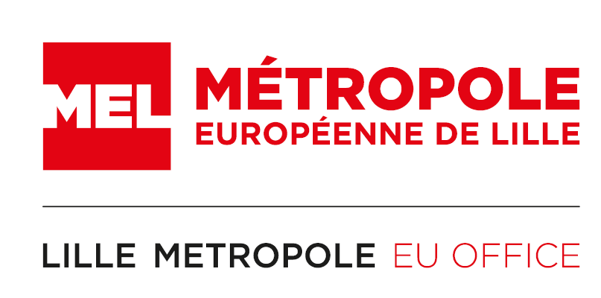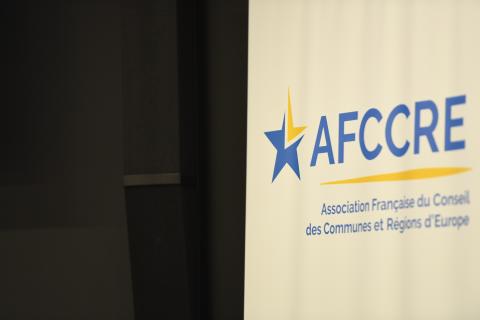Lille Metropole
where Northwest Europe meets
News
-
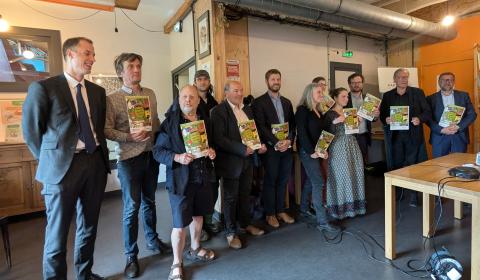 15/12/2025HUMUS Final Conference, Participatory governance for Soil Health quality management: The legacy of the HuMUS project.On 21 November, the HuMUS project held its Final Conference at the European Committee of the Regions.
15/12/2025HUMUS Final Conference, Participatory governance for Soil Health quality management: The legacy of the HuMUS project.On 21 November, the HuMUS project held its Final Conference at the European Committee of the Regions. -
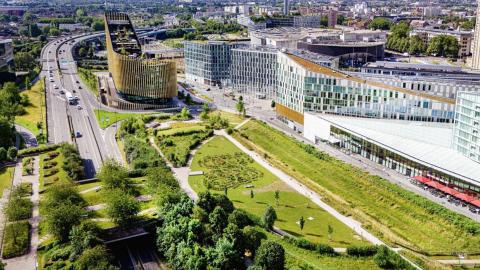 15/12/2025Presentation of Lille Metropole's candidacy in BrusselsThe third of December Lille Metropole hosted in its Brussels representation a 3rd event to promote our candidacy to welcome the future European Customs Authority (EUCA).
15/12/2025Presentation of Lille Metropole's candidacy in BrusselsThe third of December Lille Metropole hosted in its Brussels representation a 3rd event to promote our candidacy to welcome the future European Customs Authority (EUCA). -
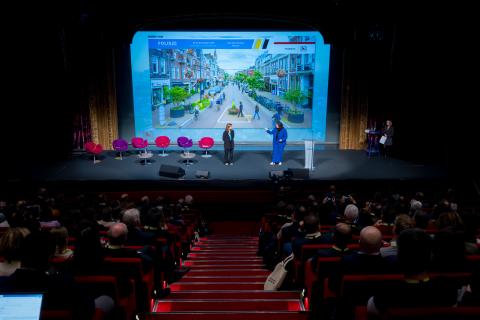 15/12/2025Lille Metropole at the POLIS 2025 annual conference: accelerating mobility and leveraging parking dataOn 26 - 27 November 2025, Lille Metropole participated in the POLIS Annual Conference in Utrecht, one of Europe’s leading events on sustainable urban mobility.
15/12/2025Lille Metropole at the POLIS 2025 annual conference: accelerating mobility and leveraging parking dataOn 26 - 27 November 2025, Lille Metropole participated in the POLIS Annual Conference in Utrecht, one of Europe’s leading events on sustainable urban mobility. -
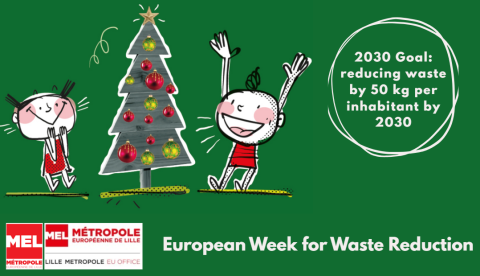 01/12/2025European Week for Waste ReductionFrom 15 November to 20 December 2025, Lille Metropole (MEL) invites everyone to take part in the European Week for Waste Reduction (Semaine Européenne de Réduction des Déchets - SERD).
01/12/2025European Week for Waste ReductionFrom 15 November to 20 December 2025, Lille Metropole (MEL) invites everyone to take part in the European Week for Waste Reduction (Semaine Européenne de Réduction des Déchets - SERD). -
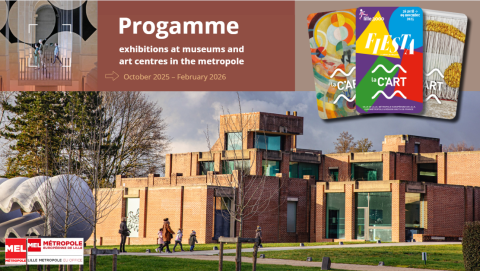 01/12/2025C’ART Connects Lille Metropole and Belgium – A New Chapter for Culture Without BordersLille Metropole continues to strengthen its European cultural partnerships through C’ART, the annual museum pass giving unlimited access to the region’s main museums.
01/12/2025C’ART Connects Lille Metropole and Belgium – A New Chapter for Culture Without BordersLille Metropole continues to strengthen its European cultural partnerships through C’ART, the annual museum pass giving unlimited access to the region’s main museums. -
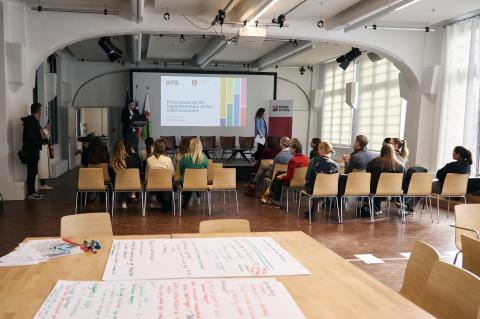 01/12/2025Participation of Lille Metropole in the Eurocities Social Innovation LabFrom 5 to 7 November 2025, Lille Metropole took part in the 5th edition of the Eurocities Social Innovation Lab, hosted by the City of Ljubljana.
01/12/2025Participation of Lille Metropole in the Eurocities Social Innovation LabFrom 5 to 7 November 2025, Lille Metropole took part in the 5th edition of the Eurocities Social Innovation Lab, hosted by the City of Ljubljana. -
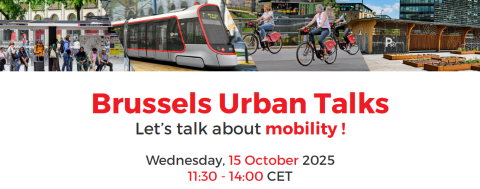 28/11/2025Brussels Urban Talks – 7th Edition: Rethinking Urban Mobility TogetherThe 15th of October, Lille Metropole hosted the seventh edition of the Brussels Urban Talks.
28/11/2025Brussels Urban Talks – 7th Edition: Rethinking Urban Mobility TogetherThe 15th of October, Lille Metropole hosted the seventh edition of the Brussels Urban Talks. -
27/11/2025Local Authorities and Europe: Let's redesign our joint projectOn 9–10 October, the 11th University of the AFCCRE brought together over 200 local elected representatives, institutional officials and European stakeholders for two days of exchanges on key issues.
-
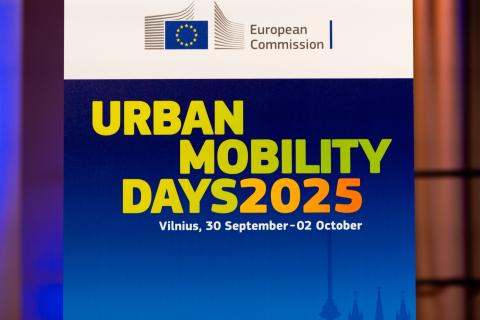 27/11/2025Lille Metropole showcases its ambition for connected and inclusive mobility at Urban Mobility Days 2025From September 30 to October 2nd, Lille Metropole (MEL) took part in the European Commission’s flagship urban mobility conference, Urban Mobility Days 2025, held in Vilnius.
27/11/2025Lille Metropole showcases its ambition for connected and inclusive mobility at Urban Mobility Days 2025From September 30 to October 2nd, Lille Metropole (MEL) took part in the European Commission’s flagship urban mobility conference, Urban Mobility Days 2025, held in Vilnius. -
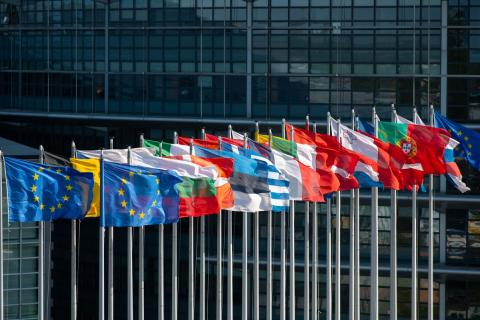 27/11/2025In a spirit of collaboration, Lille Metropole welcomed a delegation from the Stockholm Region on 11 and 12 September 2025.Lille Metropole has for many years been cultivating relationships with other metropolitan authorities represented in Brussels.
27/11/2025In a spirit of collaboration, Lille Metropole welcomed a delegation from the Stockholm Region on 11 and 12 September 2025.Lille Metropole has for many years been cultivating relationships with other metropolitan authorities represented in Brussels. -
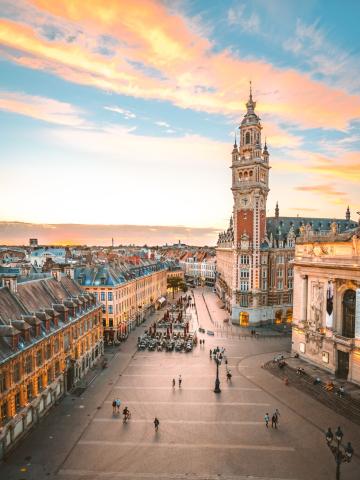 27/11/2025Lille Metropole runs to host the European Union Customs Authority (EUCA)On Monday 16 June, France has submitted Lille Metropole (MEL) as the host city for the future European Union Customs Authority (EUCA)— a choice that reflects Lille Metropole’s unique strategic assets.
27/11/2025Lille Metropole runs to host the European Union Customs Authority (EUCA)On Monday 16 June, France has submitted Lille Metropole (MEL) as the host city for the future European Union Customs Authority (EUCA)— a choice that reflects Lille Metropole’s unique strategic assets. -
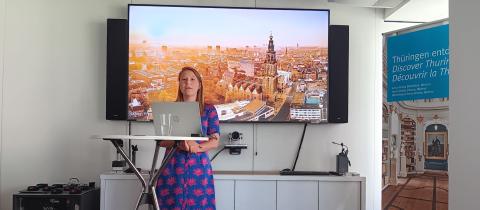 25/07/2025Brussels Urban Talks : an opportunity to discuss new ideas, share experiences, and build bridgesLaunched last year, the Brussels Urban Talks are regular meetings which regroup metropoles and cities representatives that are present in Brussels.
25/07/2025Brussels Urban Talks : an opportunity to discuss new ideas, share experiences, and build bridgesLaunched last year, the Brussels Urban Talks are regular meetings which regroup metropoles and cities representatives that are present in Brussels.
Where north western Europe meets
Lille Metropole is perfectly situated at the crossroad of Northwest Europe, between Brussels (35min by train), Paris (1h) and London (1h20) and within 3 to 4 hours from Amsterdam, Strasbourg or Frankfurt. This ideal position, at the heart of a rich and densely populated (80 M people) basin represents a huge economical asset.
A cross-border eurometropolis
Sharing 86 km of border with its Belgian neighbour makes Lille Metropole an essential partner, as evidenced by the Lille-Kortrijk-Tournai Eurometropole, the first and largest EGTC (European Grouping of Territorial Cooperation) in Europe with 2.1 million inhabitants.
A large urban and rural metropole
Lille Metropole encompasses 95 municipalities and 1.2 million inhabitants, in a territory both rural and urban, made up of cities like Lille (230,000 inhabitants), Roubaix and Tourcoing (100,000 each) and smaller towns and villages. This broad diversity of territories confronts the metropolitan authority with a variety of challenges regarding urban development, land use and environmental protection, employment and social inclusion, housing, mobility, food or culture.
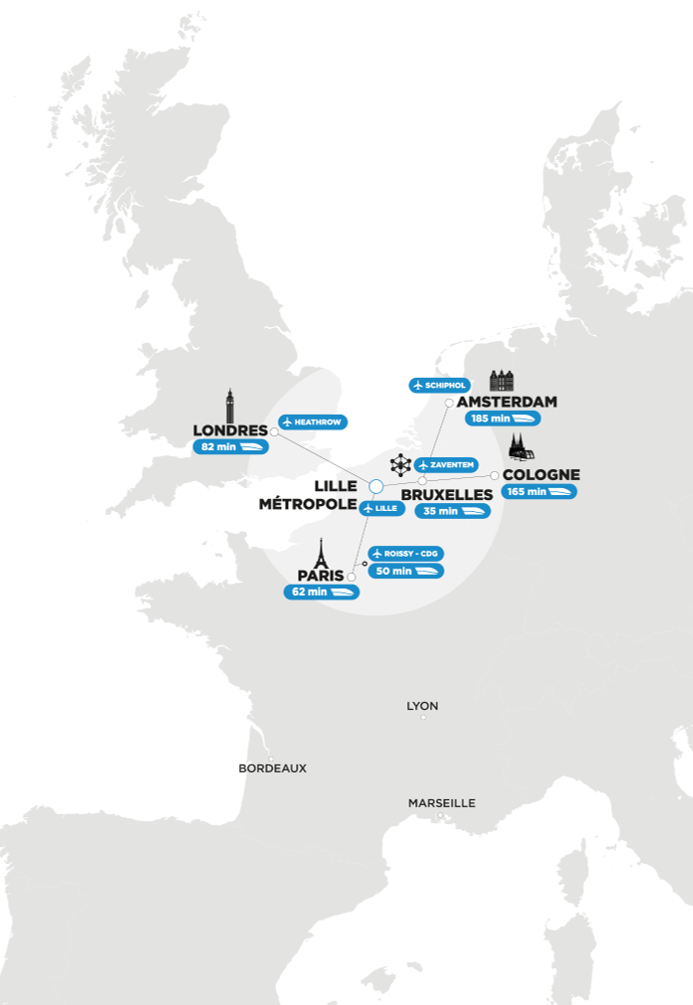

2nd university
center in France
3rd
French metropolis
(in terms of inhabitants)

35 %
under 25 years old

